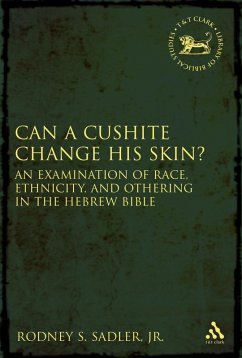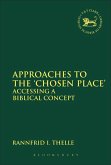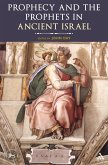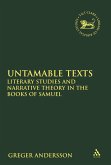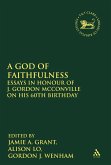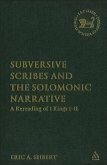How did the authors of the Hebrew Bible perceive the Cushites? Sadler demonstrates that the answer to this question provides insights into the way differences that modern scholars would classify as "racial" were understood in ancient Israel/Judah. By examining explicit biblical references to Cush and Cushites, a nation and people most modern scholars would deem racially "black," this book explores the manner by which the authors of the Hebrew Bible represented the Cushite, and determines whether differences in human phenotypes facilitated legitimating ideologies that justified the subjugation of this foreign Other.
In order to ground this analysis, this study investigates how contemporary scholars have understood "race" and "ethnicity" and proposes working definitions for these contested terms. In this vein, it offers a list of constituent elements of racial thought, which were sought in biblical references to Cush-related terms to determine if they govern the way biblical authors thought about the Cushites. Sadler uses historical critical methodologies in the exegesis of biblical passages containing references to Cush-related terms, often producing new interpretations of these texts. Sadler's study reveals that though there were on occasion constituent elements of racialist thought employed in biblical representations of the Cushites, there does not appear to have been a coherent system of racial thought in the Hebrew Bible.
Often esteemed by biblical authors, Cushites were viewed as an ethnic group like most of the nations mentioned in the Hebrew Bible. In fact, this study also reveals that there was considerable contact between Cushites and the people of Judah throughout the biblical period. It concludes by suggesting that biblical scholars need to critically reassess their understanding of Cushites and the role this people played in the history of the Levant.
In order to ground this analysis, this study investigates how contemporary scholars have understood "race" and "ethnicity" and proposes working definitions for these contested terms. In this vein, it offers a list of constituent elements of racial thought, which were sought in biblical references to Cush-related terms to determine if they govern the way biblical authors thought about the Cushites. Sadler uses historical critical methodologies in the exegesis of biblical passages containing references to Cush-related terms, often producing new interpretations of these texts. Sadler's study reveals that though there were on occasion constituent elements of racialist thought employed in biblical representations of the Cushites, there does not appear to have been a coherent system of racial thought in the Hebrew Bible.
Often esteemed by biblical authors, Cushites were viewed as an ethnic group like most of the nations mentioned in the Hebrew Bible. In fact, this study also reveals that there was considerable contact between Cushites and the people of Judah throughout the biblical period. It concludes by suggesting that biblical scholars need to critically reassess their understanding of Cushites and the role this people played in the history of the Levant.

